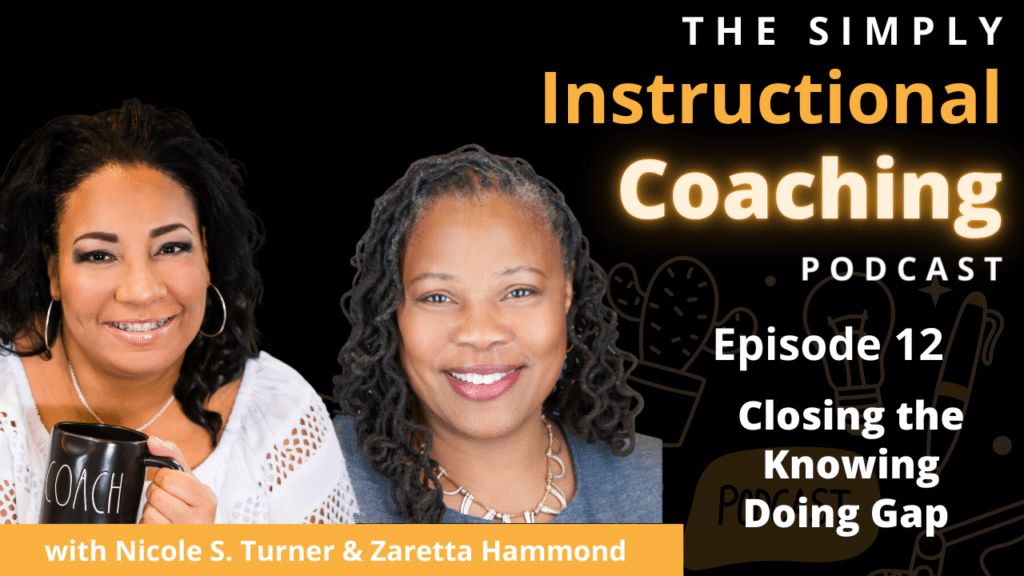Tips for an Instructional Coaching Interview – Episode 15
By Nicole S. Turner
Share This Post:


If you are considering transitioning into the instructional coaching role, the thought of interviewing for a position may be intimidating for you. The good news is that you likely have some incredible experience as a teacher, leader, or coach that you can use to ace your interview. There are some common questions and topics that are brought up in many instructional coaching interviews, and today, I am sharing some tips to help you prepare for them.
My journey into coaching was not typical. I was RIFT and was asked to have a conversation with the Director of Coaches. In this conversation, I was informed that I would be a Differentiated Instructional Coach. At the time, I didn’t know what that position would all entail. But now, the benefits of having an instructional coach are becoming much more well known. If you want to take the next step in your career or maybe just want to share your experiences with other teachers to help them, instructional coaching may be for you!
One thing I get asked about frequently is interviewing for instructional coaching roles. I definitely want to support you in preparing for your interview so you feel a little more comfortable when the interviewers are asking you questions. In this episode, I am sharing three tips I have for coaching interviews, some advice on what topics are typically covered, and the importance of taking the time to thoroughly prepare for your instructional coaching interview.
If you are looking for a great way to get incredibly beneficial professional development this summer, be sure to register for the Simply Coaching Summit! It is 3 days packed with amazing presenters sharing their knowledge and expertise to help YOU become the best coach you can be!
Topics Covered in Episode 15: Tips for an Instructional Coaching Interview
- How my instructional coaching journey began
- The importance of researching before an interview
- Why you need to be prepared to talk about your philosophy as a coach
- Tips for how to showcase your communication skills
- Advice on what additional topics you should be prepared to showcase in an interview
Links from this episode
- Register for the Simply Coaching Summit
- Grab a copy of the Simply Coaching Summit brochure here!
- Register for the In-Person Simply Coaching Summit Bootcamp
Connect with Nicole S. Turner
- Website: Home
- Simply Coaching Hub: Simply Coaching Hub
- Instagram: https://www.instagram.com/simplycoachingandteaching_
- Twitter: https://www.twitter.com/https://twitter.com/coachandteach
- Email: [email protected]



